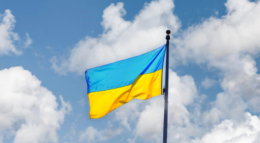
Breaking the cycles of violence that torment the Middle East
The Middle East has been plagued by cycles of violence for decades. But the past months have brought a new dimension of devastation. Hamas’ barbaric terror attacks have pushed Gaza and the whole region to the edge of the abyss. As in all conflicts, civilians bear the brunt. Israelis are traumatized by the slaughter of 7 October and families fear for their children, parents and grandparents still being held captive in Gaza. At the same time, scores of Palestinians in Gaza have lost loved ones, and lack shelter, food and medical aid. I was deeply moved when I met with Austrian-Palestinian families we evacuated from Gaza and with Israeli mothers whose sons are still held hostage by Hamas. There is no hierarchy of suffering. The pain and trauma of all civilians is heart breaking. It is our joint responsibility to protect them and to put an end to their agony.
This is why I am travelling to Tel Aviv, Ramallah, Cairo and Amman to listen and engage with partners. The roots of this conflict reach deep. Emotions run high. Positions have grown increasingly entrenched, including abroad. As the Foreign Minister of a country that is a decades-long, reliable partner of the Palestinian people while firmly acknowledging its unique historic responsibility towards the State of Israel, I consider it my duty to do whatever I can to open the space for diplomacy.
International law is the guiding principle of our foreign policy. A breach of international law is a red line, whenever and wherever in the world. That is why we unequivocally condemn Hamas’ continued rocket attacks, its terror tunnels, hostage-taking and cynical use of civilians as human shields. That is why we firmly stand by Israel’s right to self-defence in the face of terror. That is why in line with international humanitarian law we urge Israel to take all possible steps to do more to protect innocent civilians and to allow more aid into Gaza. It is also why we categorically reject statements calling for a displacement of Palestinians, why we call for Gaza to remain Palestinian and why we call for sanctions on extremist, violent settlers.
But referring to noble principles is not enough. It is through persistent and tireless diplomacy on the ground that we will reunite the hostages with their loved ones and get more life-saving water, food and medicine to the civilians in Gaza. This is Austria’s immediate priority. I am encouraged by recent talks supported by the United States, Qatar and Egypt. An agreement could prepare the ground for an enduring ceasefire and, eventually, a perspective for peace.

There is no time to waste. Every day brings more agony to the families of the Israeli hostages and the Palestinian children, women and men in Gaza. We have mobilized 13 million Euros of emergency aid for the people in Gaza and for the stability of the region. More support will follow. In the past ten years, Austrian aid to the region amounted to more than 320 million Euros. In response to the shocking allegations that UNRWA employees were involved in the 7 October attacks, we and several other donors temporarily suspended our payments, pending thorough, comprehensive and transparent investigations. But we never stopped Austrian aid. We appreciate that the UN has now taken action and are working closely with international partners to define benchmarks that will allow us to restore payments once allegations have been examined and there is clarity about the consequences. It is crucial for the United Nations to be above reproach.
They say the Middle East is a cruel place for optimists. Indeed, in the midst of all the horror and trauma it seems daunting to chart a path towards lasting peace. But to me, there is no viable and lasting alternative to the two-state solution. It’s the only game in town.
I want a future in which terrorist groups do not threaten the security of Israel. Where a civilian administration in Gaza invests in the hopes, dreams and aspirations of the Palestinian people instead of digging tunnels and plotting attacks. Where Arab states have normalized their relations with Israel and all can reap the economic and political benefits from an integrated and interconnected Middle East. A future in which the Palestinians have realized their aspirations for a viable, democratic state under a reformed Palestinian Authority.
Families – both Israelis and Palestinians - deserve to feel secure in their homes, children deserve to play and go to school without fear, women and men deserve to pursue their work and create a life in dignity for themselves and their loved ones.
Progress will not come easy and no doubt there will be setbacks. But if we have learned anything from 7 October and its aftermath, it is that we cannot continue as before. In my conversations with fellow Jewish and Muslim Austrians, with Israeli and Palestinian partners, with colleagues from North Africa to the Gulf, I have learned that despite many real or perceived differences, we can all unite around principles of common decency and humanity. Our courage and political will has to be equal to the task. Austria is committed to making this vision a reality and to preserving future generations of Israelis and Palestinians from the scourge of war.

Alexander Schallenberg is the Federal Minister for European and International Affairs of the Republic of Austria.














